Volunteers In Iran Wipe Anti-UK Slogans Off Embassy Walls
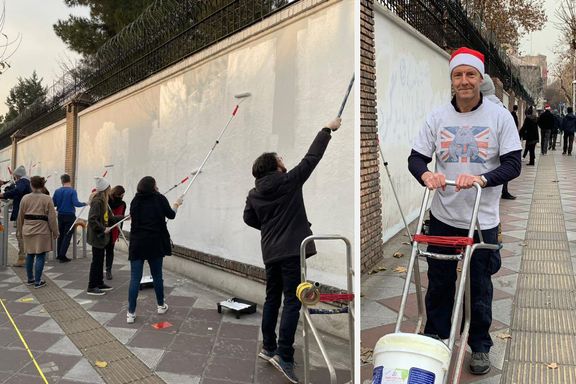
A group Iranians citizen in the capital Tehran have voluntarily helped paint the walls of the British embassy vandalized with anti-UK slogans.

A group Iranians citizen in the capital Tehran have voluntarily helped paint the walls of the British embassy vandalized with anti-UK slogans.
The slogans had been seemingly sprayed by some pro-regime elements to protest UK’s support for anti-government protesters in Iran and condemn the violation of their rights.
Britain summoned Iran's most senior diplomat in London on December 9 to protest the hanging of Mohsen Shekari, the first such execution over ongoing antigovernment unrest.
British envoy to Tehran Simon Shercliff in a tweet on Thursday thanked Iranians and international friends from Germany, South Korea, France, Italy, Brazil and some other countries who sympathized with the UK.
Photos on social media show that Shercliff himself is also helping people to paint the walls.
This is not the first time the UK embassy is vandalized by pro-regime hardliners. In 2011, the embassy was attacked by amob of Basij militia and hardliner activists who ransacked offices and stole documents. One small building was also set on fire during the incident and several people were injured.
It came after the UK strongly supported punitive international sanctions imposed over Iran's nuclear program and in response Iranian parliament voted to downgrade ties with Britain and in effect expel the UK ambassador.

Iran's Islamic regime has held the third hearing of a trial for a group of IRGC personnel it says are responsible for shooting down a Ukrainian airliner in 2020.
The hearing session was held Thursday after a one-year gap with the presence of ten defendants.
Flight PS 752 was hit with two surface-to-air missiles as it was taking off from Tehran on January 8, 2020, in the tense aftermath of Iran's missile attack on United States military bases in Iraq. The missile attack on US bases was in retaliation for the US killing of Iranian general Qassem Soleimani in Baghdad days earlier.
All 176 onboard the jetliner died but for three days the government lied about shooting down the plane.
Without mentioning any names, the regime’s judiciary only said ten defendants from different military ranks were present.
The Association of Families of Flight PS752 Victims, however, warned Wednesday that the Islamic Republic is “planning yet another mockery of justice” in a military court.
In a statement the Association stated, “Tehran’s military court will be resuming its show trials on the downing of flight PS752, which claimed the lives of 176 innocent passengers and crew, along with an unborn child.”
Based on the information obtained, added the statement, not a single high-ranking or even mid-level officer or commander of the armed forces are among the accused.
“The case and charges are based on a false theory of negligence and human error. There have been no independent experts to investigate the case. Everything has happened behind closed doors and without any transparency towards the families of the victims,” reads the statement.
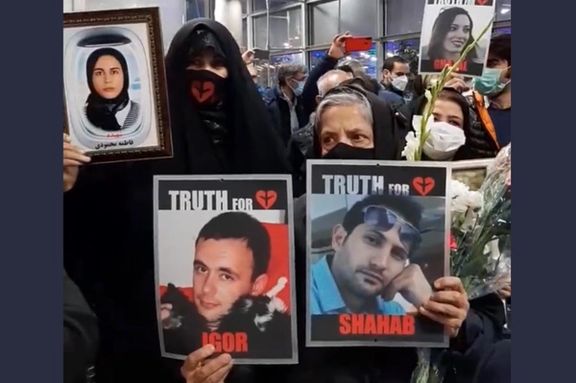
The families have instead endured and resisted nearly three years of “persecution, intimidation, threats, and sometimes deceitful offers of compensation,” it added.
Families of flight PS752 victims underlined that in recent days, the world witnessed how “innocent civilians were summarily tried and executed with no due process. Meanwhile, the culprits who ordered or carried out the orders to shoot down a civilian airliner continue to roam around with full impunity after nearly three years.”
The Islamic Republic recently executed two protesters, Majidreza Rahnavardand Mohsen Shekari in less than a week after charging them with either killing or injuring government agents during anti-regime protests sparked by the September death of 22-year-old Iranian woman, Mahsa Amini in police custody.
At least 494 people have been killed in the demonstrations amid a heavy-handed security crackdown, according to human rights groups. More than 18,000 have been detained by authorities.
“It is our duty to inform the public of the nefarious plots of the Islamic Republic thugs and their leaders,” families of flight PS752 victims stressed, underscoring that the regime “intends to close this blood-stained file in silence and at a time when the West is on holidays.”
They stated that Supreme Leader Ali Khamenei, IRGC Commander Hossein Salami, Secretary of the Supreme National Security Council Ali Shamkhani, Chief of Staff for the Armed Forces Mohammad Bagheri, Commander of IRGC’s Aerospace Force Amir Ali Hajizadeh, and many others among the highest ranks of the Islamic regime are “the real culprits behind this crime and must be put on trials.”
Some parents of the victims also boycotted the proceedings last year, saying that the trial of those allegedly responsible lacks transparency and due process.
The families of victims have filed a lawsuit at the International Criminal Court to investigate the case as a war crime or crime against humanity.
In May 2021, some family members also filed a civil lawsuit against the government and senior officials they believe were to blame for the incident. Canada’s Ontario Court ruled that the downing of the plane was an intentional act of terrorism.
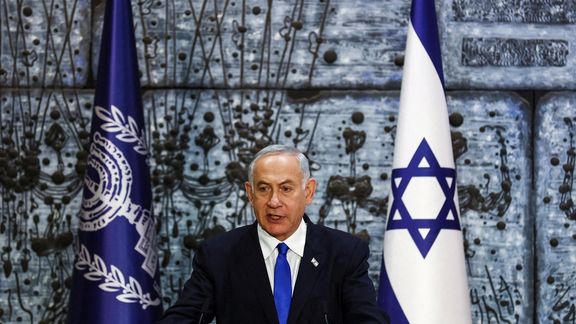
In an interview with al-Arabiya, Benjamin Netanyahu has reiterated opposition to the 2015 Iran nuclear deal and urged Saudi Arabia to ‘normalize’ with Israel.
Netanyahu, who is working for a government with militant settler and Otzma Yehudit party leader Itamar Ben-Gvir as security minister, praised the Middle policies of former US President Donald Trump.
Israel’s US-sponsored 2020 ‘normalization’ agreement with the United Arab Emirates, Bahrain, Morocco and Sudan had broken with an “old groove” and the “same rabbit holes” represented by the 2002 Saudi-drafted Arab Peace Initiative (API), Netanyahu said. The API, which remains Arab League and Saudi policy, made recognition of Israel dependent on a viable Palestinian state in the Israeli-occupied West Bank and Gaza.
Netanyahu, however, urged the United States to reaffirm its commitment to Saudi Arabia and pledged to pursue formal Israeli ties with Riyadh for a "quantum leap" in peace.
"The traditional (US) alliance with Saudi Arabia and other countries, has to be reaffirmed. There should not be periodic swings, or even wild swings in this relationship, because I think that the alliance...is the anchor of stability in our region," he said.
‘Atomic arsenal paved with gold’
Netanyahu called the JCPOA (Joint Comprehensive Plan of Action), signed by world powers in 2015, a “horrible agreement because it allowed Iran basically with international approval, to develop a nuclear and basically an atomic arsenal paved with gold, with hundreds of billions of dollars of sanction relief.”
Before Trump withdrew the US from the JCPOA in 2018, the International Atomic Energy Agency had extensive inspection powers that it used to verify Tehran’s compliance with strict nuclear limits. Iran has since 2019 responded to US ‘maximum pressure’ sanctions by boosting the nuclear program far beyond JCPOA limits.
However, the JCPOA had sunset clauses that over time would end many restrictions imposed on Iran’s nuclear program.
Netanyahu made clear his opposition to any agreement with Iran. “Who cares what they sign? It doesn’t mean anything. They sign and they violate, they cheat as fast as they sign. And you certainly shouldn't make agreements with them that are bad if they keep the agreement, which is what I think the JCPOA was.”
But the development of the Iranian nuclear program since 2019 has left Israel with little choice, the prime minister designate said, while a change of mood in Washington with the current unrest in Iran had made JCPOA renewal less likely.
Lebanon maritime agreement ‘tactical’
“A lot of people now across the board in many lands say: ‘You really cannot go back to the JCPOA and we have to do everything in our power to stop Iran from having a nuclear arsenal.’” Israel was prepared to take military action, with or without US support, to stop the Iran nuclear program, Netanyahu insisted.
He also ruled out agreement with Iranian “proxies,” calling “tactical” the October 27 US-brokered maritime agreement with Lebanon that designated sea areas to enable offshore gas exploration. Hezbollah, the Iran-allied Shia party, ruled in Lebanon, Netanyahu insisted: “Let’s be open about that. But without Iranian support, they’d collapse overnight.”
Netanyahu, whose Likud Party famously in 2019 raised a banner of him with President Vladimir Putin on its Tel Aviv headquarters, defended Israel’s relationship with Russia, emphasizing the need for intelligence cooperation with both states flying jets in Syria. He said he would “look into” Ukraine’s request for weapons from Israel once he took office.
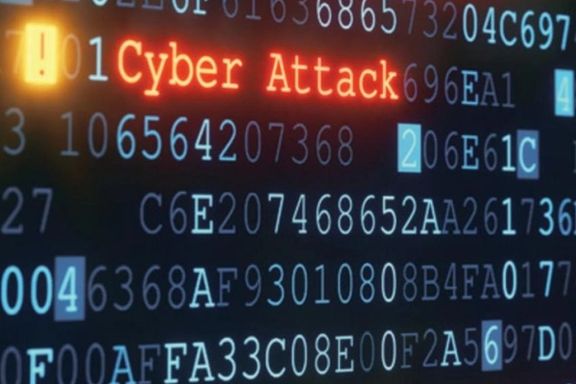
Israel along with the UAE, Bahrain, and Morocco intend to build a “Cyber-Dome” defense system to fend off digital attacks presumably from Iran.
According to the Jerusalem Post quoting a statement by the Israeli government Wednesday, the four countries held a series of meetings to discuss the issue at a conference in Bahrain on December 7.
The Times of Israel also said Wednesday that the meeting comes amid increased threats from Iranian hackers.
Based on the Jerusalem Post’s report, the statement said cyber chiefs from Oman and Kuwait also attended the same conference.
“There is life-saving value to the cyber defense dialogue, and in any case, the key is always to communicate, and to open different channels for joint research and reciprocal assistance,” reads the statement.
Meanwhile, Gaby Portnoy, the head of the Israel National Cyber Directorate told Kan public broadcaster, that “This is a historic meeting [in which] a statement by the parties [issued] regarding cooperation in the cyber field against common enemies.”
Earlier at a conference in Israel November 27 Portnoy noted that the cyber-style “Iron Dome” could employ using a mix of physical sensors with digital capabilities to “bring an awareness of the big picture to deal with our enemies and our attackers, using all of our assets and figuring out how to protect them.”
Earlier this month Human Rights Watch announced that hackers backed by the Iranian regime targeted activists, journalists, researchers, academics, diplomats, and politicians working on Middle East issues in a phishing cyber-attack.
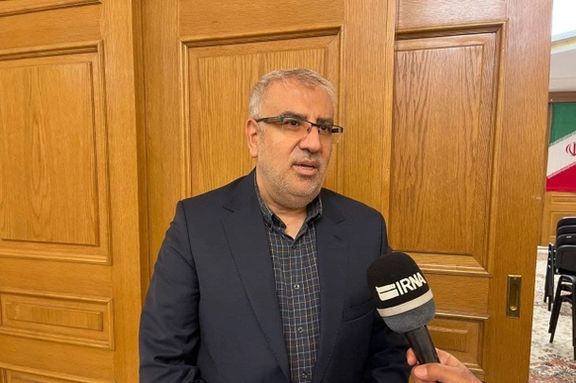
Iranian state media report that the country’s Oil minister Javad Owji has been taken to hospital after suffering a heart attack.
The emergency happened when Owji was attending a meeting to draft next year’s budget bill.
A source at Iran’s Oil Ministry said Owji has been under great pressure during this period to increase oil sales.
As the country is facing natural gas shortages amid the winter cold snap, Javad Owji has been at a dispatching center himself on Thursday to monitor the situation, the source has been quoted as saying.
Owji is currently under treatment at a hospital and according to the Oil Ministry-affiliated website SHANA, he is in a stable condition.
With cold weather gripping Iran in recent days and a surge in demand, shortages of natural gas have become acute.
ILNA news website reported Monday that Iran’s Oil Ministry has released the list of petrochemical units that must stop or reduce their gas consumption. In this letter, petrochemicals producers in Masjid-i Suleiman, Zagros, Shiraz, Bandar Imam, and several others must reduce their consumption.
Iran has the second largest reserves of natural gas in the world but is barely able to satisfy domestic demand as production steadily declines because of lack of investments in the oil and gas sector.
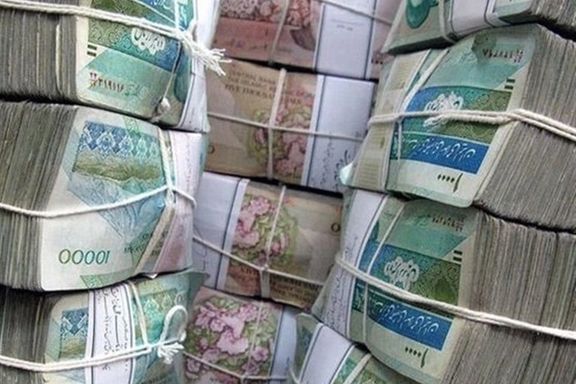
As Iran’s economic situation worsens, Tehran media report that in the past seven months more than 1,000 trillion rials were printed and added to the money supply.
Taking an average of the US dollar exchange rate, the amount comes close to just $4 billion, but Iran has been lavishly printing more money since 2018 when the United States imposed economic sanction after it withdrew from the Obama-era nuclear accord known as the JCPOA.
The astronomical amount in rials constitutes 18 percent of the money supply in this period. In August the money supply had reached 50 quadrillion rials. That is 50 with fifteen zeros.
Mahmoud Jamsaz, an economist in Tehran told Khabar Online news website in July that in the past Iranian year, from March 2021-to March 2022, the government was printing the equivalent of $15 million a day to finance its budgetary shortfall. That is 3.8 trillion rials every day.
The accumulated weight of the money in circulation has effectively devalued the currency, rial, by more than tenfold since early 2018. Money changers in Tehran on Thursday were selling one US dollar for 384,000 rials, a jump of more than 30 percent in one year.
US oil export sanctions have cut Iran’s shipments in half, which mostly go to China, but according to the desperate government in Tehran, all exports are up, and the picture is rosy. However, talking up the rial is not an effective strategy any longer, because few people believe the president, much less other officials.
In order to partially slow down the rial’s fall, the central bank injects dollars into the market, as can be detected from daily exchange rate fluctuations in Tehran, but no official information is given out.
Latest reports on social media indicate that the currency’s fall is not viewed as a normal trend anymore and a panic is setting in to buy foreign currencies and gold. This in turn accelerates the crisis, especially in the light of political uncertainty triggered by three months of anti-regime protests.
The biggest immediate reason for printing money is government borrowing from the Central Bank of Iran (CBI) to bridge its budget deficit estimated to be 50 percent. But the CBI has little gold or foreign currency reserves to back the rial banknotes it prints. The rial is not a fungible currency like the US dollar and no one invests in buying excess rials, the same way hard currencies function and better maintain their value.
The printing presses at the CBI were especially working overtime from September 21 to October 20 - the Iranian month of Mehr. This is after it became clear that talks with the United States to revive the JCPOA had hit a snag, and also after popular protests erupted.
This means that pessimism took hold in Tehran and people began hording dollars. In addition, the government was losing on tax collection as unrest closed businesses, while it had to paying extra to tens of thousands of security forces to keep them in the streets against the protesters. The government was perhaps also forced to be more generous with ordinary salaries, making timely payments to prevent more people from joining the unrest.
Another reason mentioned by local media is the scenario whereby government-owned banks began demanding money from the central bank amid their own balance sheet crises. The CBI charges the banks 21 percent interest for loans, which boosts the already 50-percent inflation rate.
Local sources say that bank borrowings from the CBI even accelerated in November and reached 910 trillion rials, which means the central bank has to print even more money in the coming weeks.